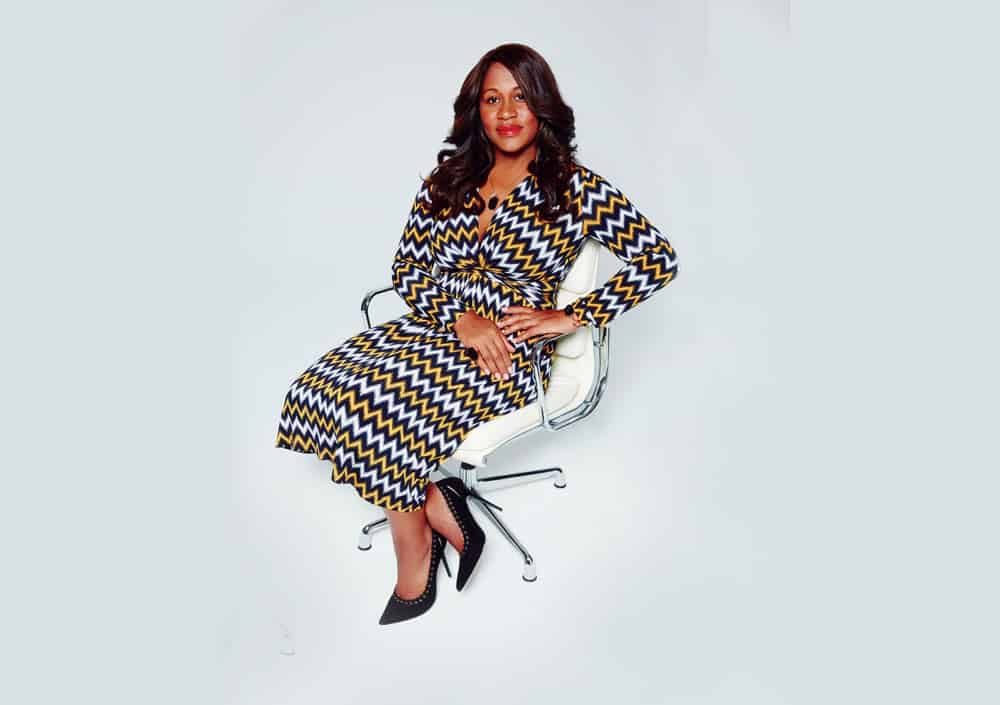Karen Blackett OBE, Chairwoman, MediaCom
A champion for ethnic and gender diversity, Karen Blackett OBE, Chairwoman of MediaCom, speaks to Deanna O’Connor about her passion for making change happen.
She has been called the most powerful woman in UK media, and in June 2014 was awarded an OBE in the Queen’s Honours list for services to the media industry. Karen Blackett is Chairwoman of the MediaCom UK, part of the global media agency.
A single mother from a working class background, daughter of Barbadian immigrants to the UK, she is a champion of ethnic and gender diversity in business.
Striking, warm and at the same time a serene and ego-less presence, Karen eschews the ‘powerful’ tag, but admits she knows she has worked her way up to a level where she can make a difference. “I feel as though I can influence,” she admits, “because I always talk about having a network which is broad, diverse and varied, and you can call on different parts of your network. And when you can change things, you can help change things for the better, that’s what I really enjoy.” Where her efforts have been concentrated is pushing the agenda for greater diversity in business, be that diversity of ethnicities, of genders, or even diversity of thought.
DIVERSITY MATTERS
Although things have improved since she first started out in the ad industry, she is still one of the few women at her level, and frequently finds herself at events one of only a handful of women or people of colour. Diversity is not just a fluffy concept to her and she quotes statistics from McKinsey’s Diversity Matters report which underline this: “The more gender diverse organisations outperform those that are less so by 15% and more ethnically diverse organisations outperform that are less so by 30%.”
Things are changing, and Blackett says, “People realise inclusion or diversity is actually an economic issue not just a social issue, or an altruisitic issue. When you have more diverstiy at senior levels, you get better business results. I do think there are still the old stalwarts and networks which we need to try and penetrate, but I think there are a lot of smart men who are concerned about future-proofing their business and ensuring that they deliver results and deliver success. That means that you need diverstiy of thought, so the doors or the barriers that were there are opening up.”
Teasing out the reasons for the greater success of businesses who demonstrate greater diversity, Blackett senses that it is about appealing to and engaging with consumers. And like any good advertising person, she always has a statistic to back it up. She says, “If the consumer economy had a gender it’s female.” She had done her homework too, for her visit to Ireland, rattling off the local figures: “Irish statistics show 62% of main shoppers are women; 52% of car purchases in Ireland are women and 38% of main income earners are women. 70-80% of all purchases are made by women.”
When it comes to the UK, they are far ahead of Ireland when it comes to a greater ethnic mix, and she points out that, “In London, over 40% [of the population] comes from a black or Asian minority ethnic background and I think Birmingham is going to be the first minority majority city in the UK, where ethnic minorities outnumber the white population.”
Whether you are talking about gender or ethnic diversity, if your audience is diverse, your company needs to be equally so: “It’s a tremendous purchasing power,” Karen points out. “If you have people within an organsiation that can build empathy with people that you are trying to target and sell products or brands to, you’re going to get more successful organisations.”
THE ORIGINAL APPRENTICES
Diversity of thought within organisations is another subject close to Blackett’s heart. MediaCom appears to be forward-thinking in this respect with initiatives such as ‘If I Ran the Company’ encouraging employees to pitch ideas. One such session generated a programme of access to life coaches within the company, which Blackett has been committed to for the last 13 years, and credits her own personal coach with helping her plot a course through difficulties.
Another inclusive effort was her apprenticeship scheme, set up in 2012 to discover and mentor talent.
“I created the first government-backed one for the media industry in the UK. In the creative industries Channel 4 were the only other company that were doing apprenticeships, but I am very realistic that the advertising industry can be a route for people from a certain background,” she explains.
The difference with the scheme was that it extended long beyond a traditional internship, provided a wage and crucially, at the end, a qualification – not to mention a job for many of the successful applicants. “I do think apprenticeships is a way of protecting our talent pipeline coming into the industry, because talent can come from everywhere but the opportunity isn’t always there, so we need to give people an opportunity,” she continued.
It has always been about wanting to win, wanting to make a difference, wanting to be the best
Opportunity is certainly important, but so is ambition and work ethic. When pressed on her levels of ambitions when she entered the industry Blackett, a former sprinter, claims her competitive streak is the real driving force behind her rise to the top.
“I have always wanted to win or be the best, so I think that has always been there. What I could achieve…I never knew I wanted to be CEO or Chairwoman. It has always been about wanting to win, wanting to make a difference, wanting to be the best.”
Now she says her ambitions are less personal, and more broader goals for her company and the industry she operates in: “ I think as you get older and your world changes it takes on different forms. For me, my ambition is for the ad industry to be a beacon for talent and to stand head and shoulders in the world stage above other markets.”
FLEXIBLE WORKING
Given Blackett’s public notoriety as a figurehead for ethnic and gender diversity, when you ask about greatest challenges she has faced in her working life, it hasn’t been so much about issues like racism or sexism – or as she notes, certainly not to her face – but, instead, it is the difficult balancing act of being a working parent that strikes her.
“I don’t think our industry is great with working parents, which is why we need more when it comes to flexibility, shared parental leave, maternity cover and care. We need to be better at it; 12% of the industry in the UK is over the age of 40. People drop out because it is too hard.”
Output should be judged on results not whether or not your bum is on a seat
Another MediaCom initiative, Project Blend, has encouraged employees to find that balance in their lives, whether it be flexibility to shape their working lives around parenting, or fit in training for a marathon.
“It’s all about finding that blend, and I think it’s our responsibility as managers to make sure that we help people with that. I still go into organisations where they don’t allow women to work part time in senior roles… Presenteeism is still a way of judging output, whereas output should be judged on results not whether or not your bum is on a seat.”
Given her formidable output, since she took on the role of CEO as a single parent with a five-month old son, Blackett is a shining example of how an agile, engaged approach to modern working life produces a very impressive output indeed.







